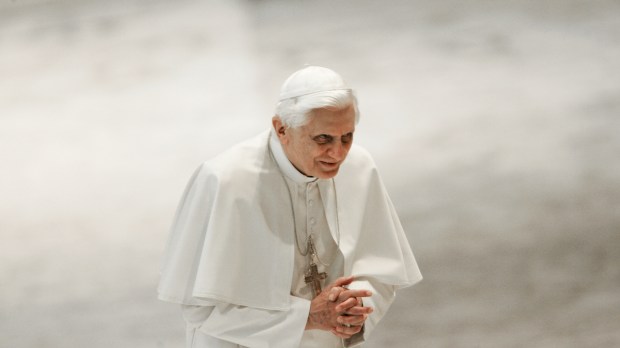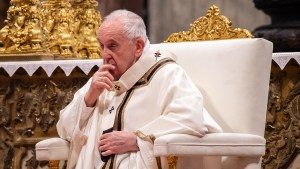The Second Vatican Council released its first document, entitled Sacrosanctum Concilium, 60 years ago on December 4, 1963. This document laid out guidelines for the renewal of the liturgy and tried to focus the Church’s attention on how Catholics worshiped God.
Pope Benedict XVI believed this was a providential document, even though some said it was “chance,” as he relates in a general audience in 2012:
The actual development of the Second Vatican Council reminds us of this. It began its work 50 years ago with the discussion of the draft on the Sacred Liturgy, which was then solemnly promulgated on December 4, 1963, the first text that the Council approved. That the Document on the Liturgy was the first document to be promulgated by the conciliar assembly was considered by some to have happened by chance.
Not by chance
He explains why it was important for Vatican II to begin with the liturgy and how it was not a work of “chance”:
[T[here is no doubt that what at first sight might seem a coincidence, also turned out to be the best decision, on the basis of the hierarchy of the subjects and of the most important duties of the Church. In fact, by starting with the theme of the “liturgy,” the Council shed very clear light on the primacy of God and his indisputable priority. God in the very first place: this itself explains to us the Council’s decision to start with the liturgy. Wherever the gaze on God is not conclusive, everything else loses its orientation. The fundamental criterion for the liturgy is its orientation to God, enabling us to take part in his action itself.
Open to God’s voice
Benedict XVI then goes on to write about why the liturgy is so important and how it calls us to be open to God’s voice:
I would just like to mention one of the moments during the liturgy itself; it calls us and helps us to find this harmonization, this conformation of ourselves to what we hear, say and do in the celebration of the liturgy. I am referring to the invitation that the celebrant expresses before the Eucharistic Prayer: “Sursum corda,”let us lift up our hearts above the confusion of our apprehensions, our desires, our narrowness, our distraction. Our hearts, our innermost selves, must open in docility to the word of God and must be recollected in the Church’s prayer, to receive her guidance to God from the very words that we hear and say. The eyes of the heart must be turned to the Lord, who is in our midst: this is a fundamental disposition.
While it might have seemed arbitrary to begin with the liturgy, Benedict XVI believed that it was providential and that we should learn from this example and begin with God, opening our hearts to him, listening to his voice.


